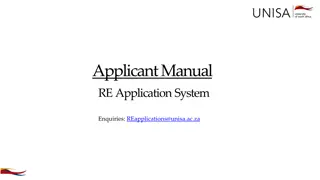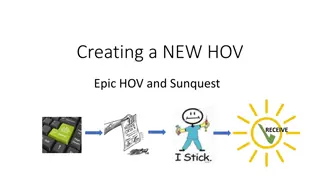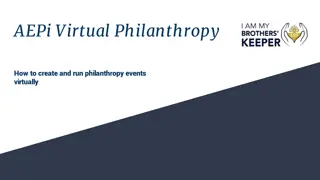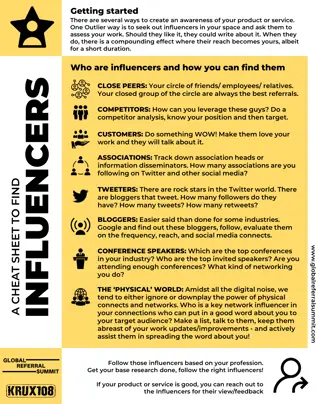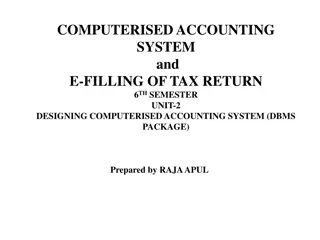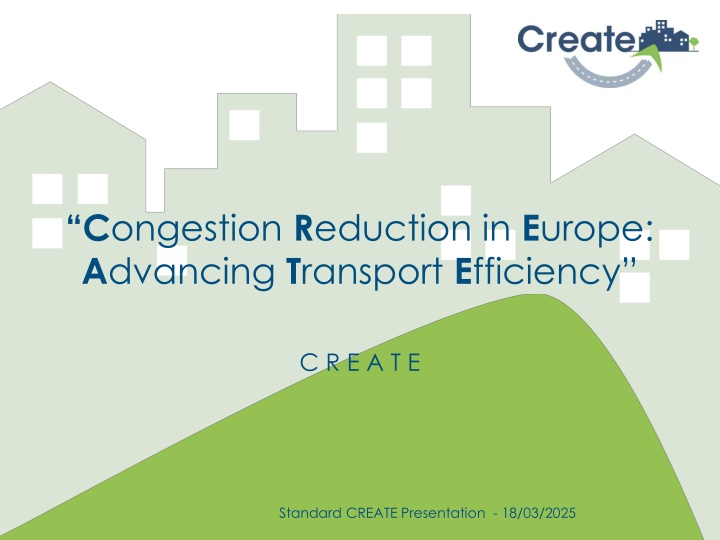
Advancing Transport Efficiency in Europe with CREATE Standard
Explore how the CREATE initiative aims to reduce congestion, promote sustainable transport, and tackle urban road challenges in European cities through innovative policies and technologies.
Download Presentation

Please find below an Image/Link to download the presentation.
The content on the website is provided AS IS for your information and personal use only. It may not be sold, licensed, or shared on other websites without obtaining consent from the author. If you encounter any issues during the download, it is possible that the publisher has removed the file from their server.
You are allowed to download the files provided on this website for personal or commercial use, subject to the condition that they are used lawfully. All files are the property of their respective owners.
The content on the website is provided AS IS for your information and personal use only. It may not be sold, licensed, or shared on other websites without obtaining consent from the author.
E N D
Presentation Transcript
Congestion Reduction in Europe: Advancing Transport Efficiency C R E A T E Standard CREATE Presentation - 18/03/2025
Context CREATE is part of the CIVITAS initiative The 2014 urban mobility projects under Horizon 2020 are branded knowledge generating projects and cover 3 topics: Transforming the use of conventionally fuelled vehicles Reducing the impact of freight and service trips Tackling urban Road congestion CREATE is under the 3rd one and will cooperate with other CIVITAS projects.
18 Partners from 11 Countries Universities Private Company & Consultants City network 10 Cities
What is CREATE about? A project for cities and with cities The project addresses the challenging problems of dealing with car use faced by most cities in Europe and beyond. It will identify ways to deal with the consequences of future population growth and associated mobility densification, through new technologies, business models and social practices.
CREATE fundamental aim CREATE aims to establish : which policies are most effective at reducing congestion and promoting sustainable transport, whether such policies are transferable to other cities, and how cities are going to respond to the challenges of rapid population growth and new transport technologies in the future.
CREATE primary goal CREATE searches to inform cities on how best to reduce congestion and improve transport network performance by lowering levels of car use (or moderating the rate of growth in rapidly developing economies), encouraging sustainable mobility and becoming a liveable city.
A CREATE-ive approach CREATE helps cities to decouple economic growth and high mobility from traffic growth create a sustainable transport system Most cities around the world are at different stages of an evolutionary transport policy development process
Stage 1 Cities Cities with pro-car policies are characterized by rapid urban economic growth linked to the growth of car ownership and use. They prioritise major road building and new car parking.
Stage 2 Cities Cities facing problems associated with increased car use, such as congestion and pollution, introduce policies to provide better public transport alternatives and limit car access to city centres.
Stage 3 Cities Cities aspire to become liveable cities by encouraging street activities, relocating road space to public transport, and promoting walking and cycling.
Can this evolutionary/learning process be short-circuited? CREATE promotes knowledge transfer to stage 1 cities and supports them in short-circuiting this evolutionary process, to become more liveable and sustainable.
Objectives Develop concrete guidance for cities Address the challenge of mobility densification Examine how to reduce car use and promote liveability Produce knowledge transfer and exploitation material Tackling Urban Road Congestion Investigate nature and causes of urban road congestion
Positioning of the project CREATE focuses on: Developing new congestion and network performance indicators and insights into how cities can reduce car use, Making a business case for investing in sustainable mobility infrastructure and measures.
Methodological approach User needs analysis Data collection and collation Data analysis Synthesis of findings Future city challenges International experiences Dissemination, Exploitation, Capacity Building and Knowledge Transfer
User needs analysis To engage with the appropriate internal and external stakeholders and to refine set of project outputs. Includes: Policy processes and outcomes Indicators of congestion and network performance Involves: face-to-face workshops with Stage 3 city partners, a sounding board group of cities included on our Stakeholder Engagement Group (SEG)
Data collection and collation 4 kinds of data: 1. Observational data: to measure congestion and network performance (traffic counts, speed measurements, GPS and mobile phone data). 2. Behavioural data: to track changes in behaviour (existing household travel survey data, such as car driver modal shares). 3. Quantitative data: to explain statistically the observed changes in behaviour (supply and contextual variables). 4. Qualitative data: to describe the Transport Policy Evolution Cycle in each Stage 3 city (process factors / implementation of sustainable mobility policies).
Data analysis Main forms of analysis include: 1. Compilation of new indicators of congestion and network performance, and comparison with current measures, spatially and temporally, including mapping. 2. Descriptive analysis of travel behaviour and showing trends over time. 3. Statistical modelling of changes in travel behaviour 4. Analysis of qualitative data on the policy development process in Stage 3 cities These very different forms of data enquiry are combined.
Synthesis of findings At various levels: Comparing the results of the quantitative analyses across the five Stage 3 cities general conclusions cross-site conclusions Combining the qualitative and quantitative analyses high-level conclusions and recommendations Will result in a major technical output of the CREATE project: a new set of Guidelines.
Future city challenges How new technologies and social and business practices might affect the demand for mobility ? could more generally contribute to more sustainable living patterns in cities ? This task will draw on: the extensive literature on socio-technical systems international experiences work on future mega trends likely to affect cities.
Dissemination, Exploitation, Capacity Building and Knowledge Transfer Wide variety of methods to ensure that the relevant target groups either have the opportunity to contribute to the work of the project, or benefit from it in the most appropriate manner Strong emphasis on knowledge transfer among all the city partners linked to capacity building both internally and externally Strong mechanisms for the exploitation of the key findings among a wide range of cities, university teaching departments with a view to developing commercially exploitable new empirical indictors of city network performance
Primary Outputs Analysis: Urban congestion & network performance: a new understanding Report of cross-city comparisons Final report on socio-political factors CREATE guidelines: Pathways to tackling current congestion and reducing levels of car use in European cities Developing a set of effective and politically acceptable Stage 4 city policies: a SUMDP = Sustainable Urban Mobility Densification Plan
Intended Impacts Change debate about measurement of congestion & network performance Provide insights into why cities evolve away from car promotion and how is this universally possible? Guidance to Stage 1 cities on how - and why - to rapidly advance to Stage 3 Guidance to Stage 3 cities on how to go to Stage 4 Coping with mobility densification
Coordinator contact: Prof. Peter Jones, CTS Scientific coordinator University College London peter.jones@ucl.ac.uk Communication contact: Vanessa Holve Policy advisor and project coordinator EUROCITIES vanessa.holve@eurocities.eu CREATE has received funding from the European Union s Horizon 2020 research and innovation programme under grant agreement N 636573
Thank You! www.create-mobility.eu






